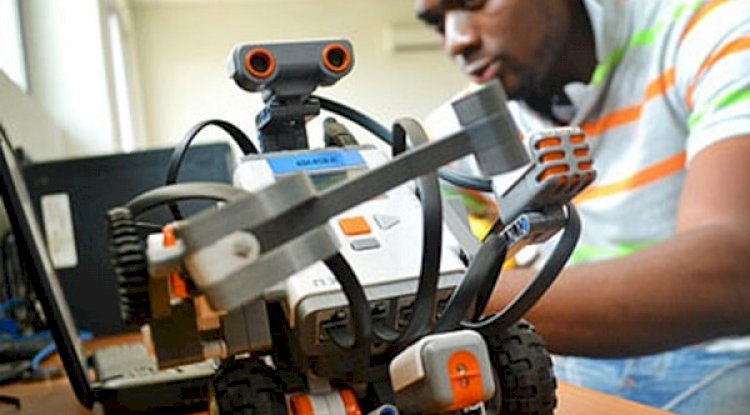Interview: Dr Natalia Kanem – Gender Equality is about fighting for the right things…’
Women’s rights, including access to sexual and reproductive health, and their ability to make decisions on these issues, are cornerstones of gender equality, sustainable development and productive populations. Arguably, measurable progress in empowering women in different fields is being made. But in this wide-ranging interview, Dr Natalia Kanem, Executive Director of the United Nations Population Fund (UNFPA), tells our This Special Report’s Guest Editor reGina Jane Jere: “We are still not where we need to be.”

New African: This year marks the 25th anniversary of the International Conference on Population and Development (ICPD), and the 50th anniversary of the UNFPA. You have recently been quoted as saying the upcoming Nairobi Summit on ICPD 25 will “reaffirm rights and choices for all.” But there is still a lot of “unfinished business” and inequalities still persist. What are your reflections?
Dr Kanem: This year indeed marks the 25th anniversary of the groundbreaking 1994 ICPD which took place in Cairo, where 179 governments adopted a Programme of Action, recognising that reproductive health, women’s empowerment and gender equality are the pathway to sustainable development.
While we have made amazing progress since then, we still have a long way to go: 232m women in developing countries lack access to modern contraceptives, 830 women die each day while pregnant or during childbirth, and one in five women or girls will be assaulted by their partner each year.
That is why the Nairobi Summit happening this November is so important: it will be a unique opportunity to re-energise the global community, breathe new life into the ICPD agenda, and obtain the voluntary global commitments we need to finally put an end to this unfinished business.
Through the years, how have both the ICPD and UNFPA impacted Africa? What has changed and what has worked or otherwise? How does the work help accelerate progress of the SDGs and reduce inequality?
Since the ICPD Programme of Action was agreed upon by the international community, UNFPA has played a vital role in making sure that every girl and woman is able to exercise her human rights. Our work in ensuring that each woman is given the power to choose the number, timing, and spacing of her children has had an enormous impact throughout the world, and especially in Africa.
Thanks to massive global efforts to make contraception available to women, including the UNFPA Supplies programme, we have seen the contraceptive prevalence rate in Africa almost triple from 1994 to 2019. Despite this, more than a fifth of women in Africa still have an unmet need for family planning methods.
By supplying women with contraceptives that they wouldn’t have been able to otherwise access, in 2018 alone UNFPA was able to avert more than 20m unintended pregnancies; over 5.5m unsafe abortions; and almost 70,000 maternal deaths across the continent.
The work we do hinges on, and contributes to, other global objectives, especially the UN Sustainable Development Goals (SDGs). UNFPA works with governments, partners and other UN agencies to directly tackle many of these goals – in particular Goal 3 on health, Goal 4 on education and Goal 5 on gender equality.
If we cannot achieve the goals laid out in the ICPD Programme of Action, then it will be impossible to meet the SDGs. In other words, there can be no SDGs without ICPD.

As a doctor, it is sad for me to know that the leading cause of death for teenage girls worldwide is pregnancy and childbirth-related complications. Each day, approximately 800 women and girls die from pregnancy-related causes.
Political will is also key to how Africa progresses. How much emphasis do African governments place on providing services in reproductive and maternal health, for example – even in terms of policies including budgeting? Is enough being done?
When we talk about the great advances that we have made in improving reproductive health services, as well as the progress that is still needed, let’s not forget that Africa is not homogeneous, but a richly diverse continent. So we cannot make sweeping generalisations about Africa as a whole.
However, what I can say is that even in areas where progress is needed, we have witnessed fantastic leadership in many of the countries where we work towards solving this problem. It is very important for us to work alongside governments to mobilise the political will to ensure that proper policies are put in place to address specific needs.
‘My Body, My Life, My World’ is an apt and strong message in the current narrative, but at the same time, in Africa, reproductive health and rights largely remain taboo subjects. How is UNFPA addressing prevailing cultural challenges – especially pertaining to the youth and women? And what are the successful outcomes so far?
In Africa, and many other parts of the world, taboos relating to sexual and reproductive health and rights can undermine and are a huge impediment to women and girls realising their full human and reproductive rights, as well as their overall wellbeing.
It is also important to educate entire communities about women’s basic rights with innovative and culturally sensitive approaches. By breaking down social barriers and including men, family members, and traditional leaders in this conversation, we try to show that these are not simply ‘women’s issues’, but human issues. This approach has been successful in many settings, including throughout Africa, helping improve understanding of the issues and reducing the stigma surrounding sensitive topics such as menstruation and contraceptive use.
And if you had to name some flagship projects or programmes you would wish countries or regions to replicate, and scale up impact, which ones would those be?
I would be remiss not to mention UNFPA Supplies. This is our thematic programme dedicated to expanding access to family planning. Since its launch in 2007, UNFPA Supplies has grown to be the largest contraceptives provider worldwide. Currently, the programme is working in 35 countries in Africa. This gives women and adolescent girls the power to access a choice of contraceptives, and to date, it has saved nearly 1.3 million lives worldwide.
I also want to mention the UNFPA-UNICEF Joint Programme on Female Genital Mutilation, which was developed to end this harmful practice and provide care for women and girls living with its consequences.
We estimate that more than 200m women alive today have undergone some form of FGM. The programme works to develop national, human rights-based strategies that are culturally sensitive and help educate families and communities to choose to abandon the practice once and for all. Now in its third phase of implementation, the programme has helped more than 3.2m girls and women receive protection and care services related to FGM.
Innovative partnerships and coordinated investments are also key to securing the continent’s future prosperity. Both are at the heart of the Sahel Women’s Empowerment and Demographic Dividend (SWEDD) regional initiative. This successful partnership between the World Bank, the Economic Community of Western African States (ECOWAS) and UNFPA is helping to increase the participation and inclusion of women and girls in development, from the seven SWEDD participating countries (Burkina Faso, Chad, Côte d’Ivoire, Mali, Mauritania, Niger, and the newest member, Benin). This includes the poorest and most marginalised girls and young women and the millions at risk of early marriage.
Given your background in medicine and your passion for fighting inequality, what has been your greatest challenge as UNFPA ED and how are you overcoming that?
As a doctor, it is sad for me to know that the leading cause of death for teenage girls worldwide is pregnancy and childbirth-related complications. Each day, approximately 800 women and girls die from pregnancy-related causes. For each of these, we also estimate that 20 to 30 additional women suffer from complications with serious consequences, such as injuries, infections, or obstetric fistula, which leave women with incontinence and can also lead to social isolation and other health disorders.
It is especially sad for me to know that many of the complications that lead to these deaths and other health issues are entirely preventable, where there is access to health services. This is why we must make the right investments and keep working to accomplish UNFPA’s three transformative goals: zero unmet need for family planning information and services, zero preventable maternal deaths, and zero sexual and gender-based violence and harmful practices against women and girls.
Since your appointment, you have been travelling around the world. Who or which countries are getting it right, (in terms of all issues you advocate for), and from whom can others draw examples?
We are seeing so much progress and fantastic work being done all over the world, and throughout Africa, by many different players – governments, local leaders, young people, and more.
For example, in Niger, our work with the President and the First Lady has led to legislation that reduced child marriage, improved enrolment and retention rates of girls in school, and contraceptive prevalence for adolescent girls.
In Lesotho, large groups of young people have signed a commitment to accelerate the ICPD promise. This pledge holds them accountable for the promotion of sexual health and rights and encourages them to demand accountability from duty-bearers.
In South Sudan, tremendous progress has been made in the area of maternal health: in just 8 years, the country has grown from having the highest maternal death rate in the world and only eight midwives, to more than 700 midwives today and an increased commitment to make health and maternal care accessible for women.
This work must continue until we are able to fulfill the promise that was made to the world 25 years ago by the international community at the ICPD.
UNFPA’s work on the demographic divided is well-known. Yet youth exclusion at almost all levels remains rampant in Africa, which clearly impedes global goals, more so SDG 10. How do you convince this generation that there is a better future for them?
Today’s adolescents and youth, 1.8bn strong, are a quarter of the global population. The world population is overwhelmingly young, and youth face different sets of problems throughout the world. But this new generation of young people is bright, smart, and full of hope for their future. They are active, engaged, and want to be included in decision-making and world processes. They are on balance the most educated and healthiest young generation ever.
This is why UNFPA’s work empowering countries to harness their demographic dividend is so important. It is our collective global responsibility to ensure young people are able to access all the opportunities they should have access to. It is our responsibility to give them a seat at the table and the tools they need to succeed in tomorrow’s world.
We are in the fourth year of the SDGs already, how does the UNFPA assess progress so far? There are also those who fear that some failures of the MDGs risk being repeated. Do you agree?
Over the past two decades, the world has seen tremendous progress in many areas. However, in the area of sexual and reproductive health and rights, we are still not where we need to be. For example, since 1990, the world has seen a 44 per cent decline in maternal deaths. While this progress must be recognised, the world had agreed on a 75% decline by 2015 under the MDGs. And we are still nowhere near achieving our promise of universal access to reproductive health and we are still far behind that 2015 target.
I believe that at this time, with the SDGs, it is crucial for the world to come together and use these milestones as inspiration, but also as a reason for us all to redouble our efforts to help us achieve the progress we seek.
In order for us not to repeat the mistakes of the MDGs, we must be able to forge new partnerships and work together as a global unit to correctly and efficiently address the most pressing world issues outlined in the 17 Global Goals.
Where should we be drawing optimism from, that the ‘war’ on inequality, for reproductive rights, against gender-based violence and harmful practices, will be won?
For me, the most important thing that keeps me motivated is knowing we are fighting for the right things. Today, about 800 women died in childbirth. Today, in developing countries, 20,000 girls under the age of 18 gave birth. Today, tens of thousands of girls under the age of 18 were married off. Today, one in three women can expect to experience some form of physical or sexual violence in their lifetime. This needs to change, and it needs to change now.
Each of these numbers tells a personal story and each one of these women or girls could have been my friend, my sister, my mother, my daughter, or me. That is what motivates me to create a better world for women and girls, no matter where they may be.
It is my hope that at the Nairobi Summit we will mobilise the major commitments needed to eliminate unmet needs and it has the potential to be a watershed moment, saving lives and positively impacting millions of people.
* Dr Kanem is the fifth Executive Director of UNFPA since the Fund became operational in 1969. She holds a medical degree from Columbia University, New York, and a Master’s degree in Public Health, with specialisations in epidemiology and preventive medicine, from the University of Washington, Seattle. She is also a magna cum laude graduate of Harvard University, where she studied history and science. Dr Kanem was founding president of ELMA Philanthropies Inc., a private institution focusing primarily on children and youth in Africa.
Written by Regina Jere
What's Your Reaction?

























